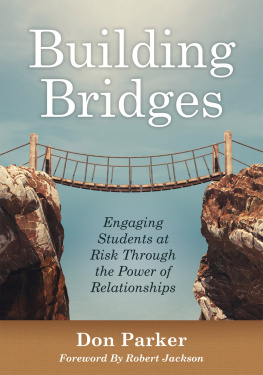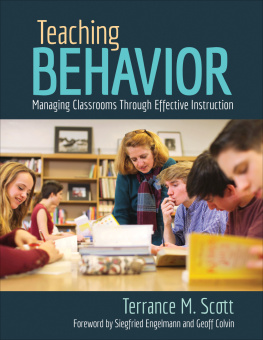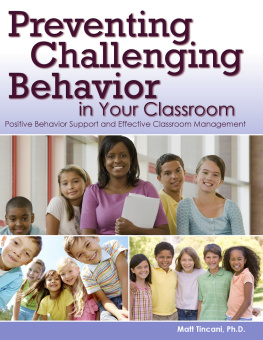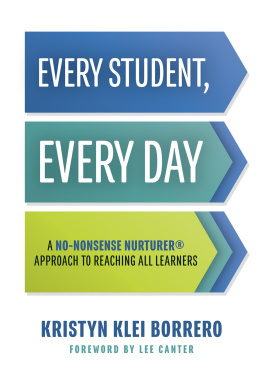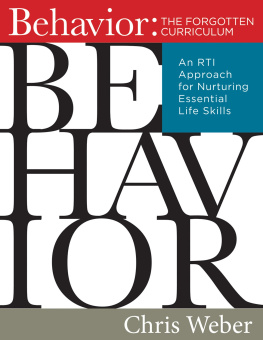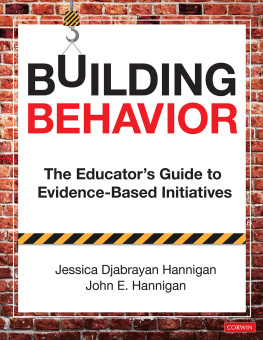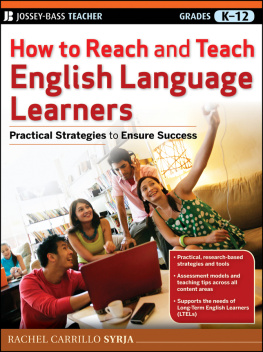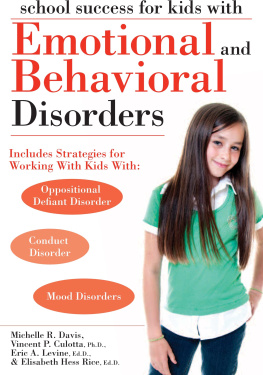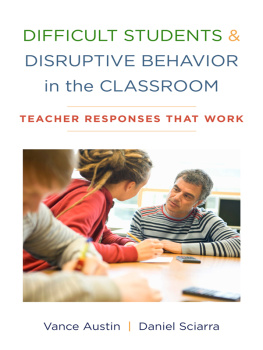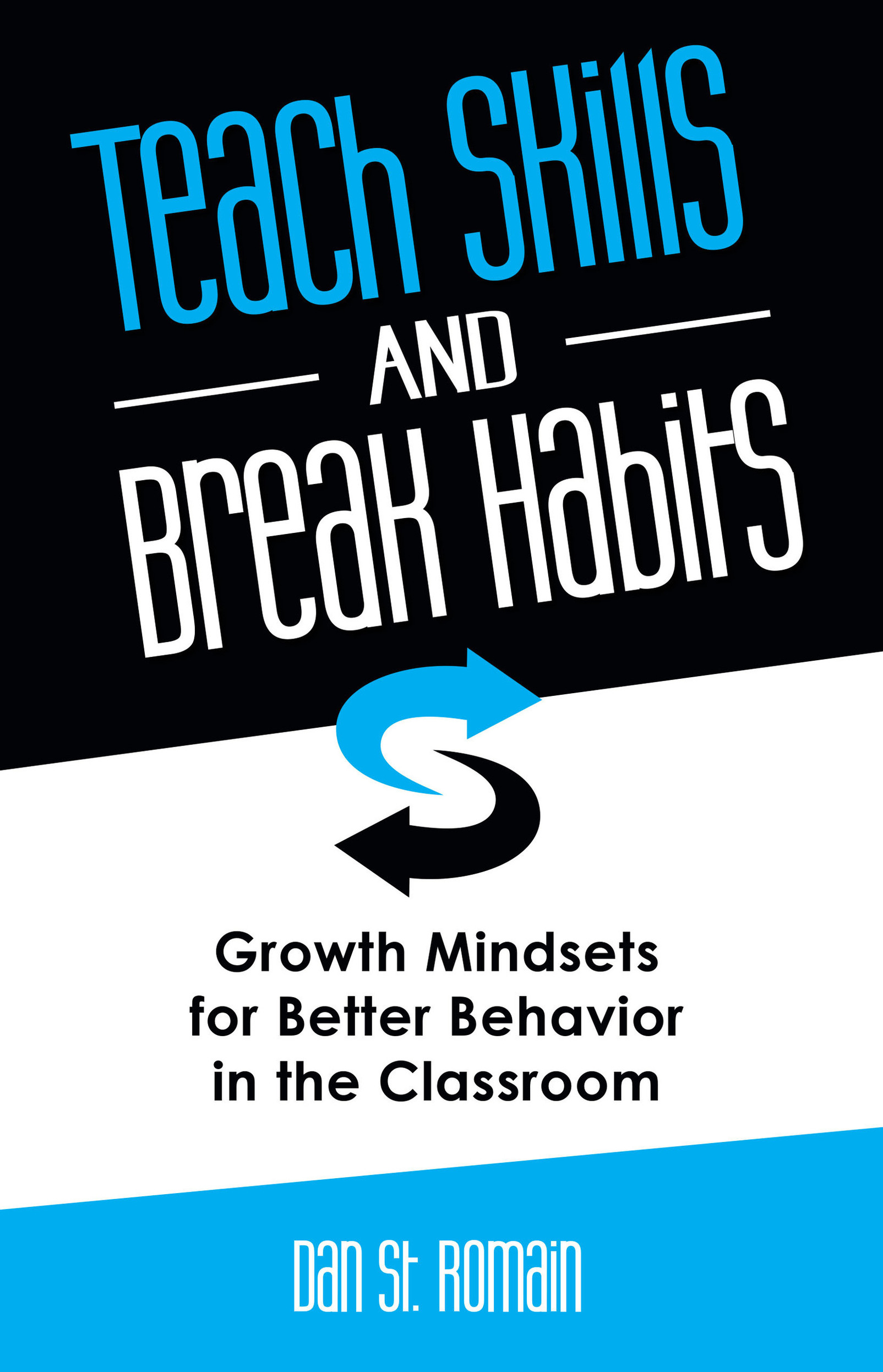Dan St. Romain
Teach Skills and Break Habits: Growth Mindsets for Better Behavior in the Classroom
First published by National Center for Youth Issues 2018
Copyright 2018 by Dan St. Romain
Third party links are accurate at the time of publication, but may change over time.
Duplication and Copyright
No part of this publication may be reproduced, stored in a retrieval system or transmitted in any from by any means, electronic, mechanical, photocopy, recording, or otherwise without prior written permission from the publisher, except for all worksheets and activities which may be downloaded and reproduced for a specific group or class. Reproduction for an entire school or school district is prohibited.
The information in this book is designed to provide helpful information on the subjects discussed and is not intended to be used, nor should it be used, to diagnose or treat any mental health or medical condition. For diagnosis or treatment of any mental health or medical issue, consult a licensed counselor, psychologist, or physician. The publisher and author are not responsible for any specific mental or physical health needs that may require medical supervision, and are not liable for any damages or negative consequences from any treatment, action, application or preparation, to any person reading or following the information in this book. References are provided for informational purposes only and do not constitute endorsement of any websites or other sources.
First edition
ISBN: 978-1-95-394505-1
This book was professionally typeset on Reedsy
Find out more at reedsy.com

I am grateful to the staff at the Howard Early Childhood Center in the Alamo Heights Independent School District in San Antonio, Texas. Over the course of the last fifteen years in working with them, they have shown me that not only is there a better way to deal with discipline in the school system, but that it can be done. Their flexibility in meeting the behavioral needs of our students, willingness to challenge assumptions, and continual openness to growth encouraged me to write this book.
Preface
Dear Reader,
This body of work has been in my brain for almost a decade, waiting to get out. Each time I tried to organize my thoughts and begin typing, I discovered gaps in my understanding. Until now. Somehow, this past year, the stars aligned and I began to see how all the pieces of the puzzle fit together.
The bottom line: Behavior is complicated. And when we try to simplify it, we often miss the mark. I believe this is the frustration of many teachers who have been given simple strategies for complex behaviors. If you are picking up this book, you are probably one of these teachers. And Im guessing you are looking for more effective strategies.

Over the last several months, Ive had the opportunity to work with an amazing group of educators from Virginia Public Schools on the issue of student behavior and social-emotional learning. After providing several staff development sessions, in-class modeling, and consultation, I met with the staff to examine the outcome of our efforts.
After a few meetings, I realized I was getting the same feedback from each group. The teachers were most thankful for the opportunity to examine student behaviors in a new way, and for being given specific strategies to teach behavioral skills and break poor habits. They had shifted their own perspectives, and were more receptive to trying different strategies to change behaviors.
Not surprisingly, that is the focus of this book: changing perspectives to change behaviors. As you read the book and see this icon, I encourage you to remember the importance of examining your beliefs about student behavioras I believe this is the first step, and ultimately the best means, of creating positive behavioral change in your students.
Dan St. Romain
Acknowledgement
I discovered the process of writing this book was very stressful. I finished it at midnight on Easter morning, but did the majority of my writing the forty days leading up to that point. How fitting that at times I felt as though I was wandering in the desert. Lucky for me, I had a huge support system of individuals who carried me through the process.
First, I must thank my family. My wife, Prissy, models what I teach without even trying. Her love and unspoken contributions inspired me when it all started to become a blur. And my boys, Matthieu, Micah, Marc, and Max, each with their own unique gifts and challenges, broadened my understanding of behaviorand continue to do so.
Thanks also to several of my friends and family who endured many a discussion about behavior. Lee Anne and Cecile were my two biggest cheerleaders, and they kept my business afloat while I was knee-deep in writing mode. Cheryl spent countless hours on the phone with me pouring through the final draft before it was turned in. And just knowing I could call Laura, Todd, Libby, and my siblings at any time meant a great deal to me.
As mentioned in the dedication, Im appreciative of my Howard family, and, especially, Wilma, Dan, Stephanie, and Susan, the principals who challenged me professionally. I am also thankful for the input provided by Peggy, Marianne, and Mary Ellen. I bent their ears many times throughout the writing process.
Lastly, a huge thank-you goes out to my NCYI extended familyJennifer, Robert, Jason, Phillip, and my editor, Matt. Without their ongoing encouragement and support, this book would not have been written. They kept me on schedule and dealt with my many obsessive issuestoo numerous to list.
I am blessed beyond measure and thankful for you all.
Praise for Teach Skills and Break Habits
The shift in perspective Dan provides is huge. There are subtle changes in the way you can address students that have huge impact on their behavior. Instead of assuming students know better and punishing them for not having the appropriate social behaviors, Dan equips us to teach them these skills and practice them.
Tara Mesing, Virginia Beach, VA
Dans approach has been a game changer for me. As a new teacher, I was struggling to find a behavior management system that would meet multiple needs in my classroom. His information gave me the tools I needed to create a better learning environment for my students. I use the callbacks with my students daily. These are a great way to remind them of my expectations, along with regulating their own behavior.
I cannot thank Dan enough for the peace of mind he has brought me. Yes, I will always have those kids. But I know I am better prepared and equipped to help them meet their potential.
Sara Umphries, West Terre Haute, IN
After hearing Dan speak three years ago about behavior management, everything suddenly made sense to me. We teach everything else to children in stages, so why not behavior? I immediately went back to my room and threw out my card system. I explained the system being gone to my class and one of my students said, I am so happy nobody will have to change their ticket anymore. That made me so sad.
I continue to apply Dans approach to teach classes and parents each year. His model creates accountability to the entire class; they use the callbacks on each other. My personal favorite is when they get in each others space and say, I have my space; you have your space. It creates mutual respect in my room. I wish I had known Dan twenty-five years ago when I first started teaching!


